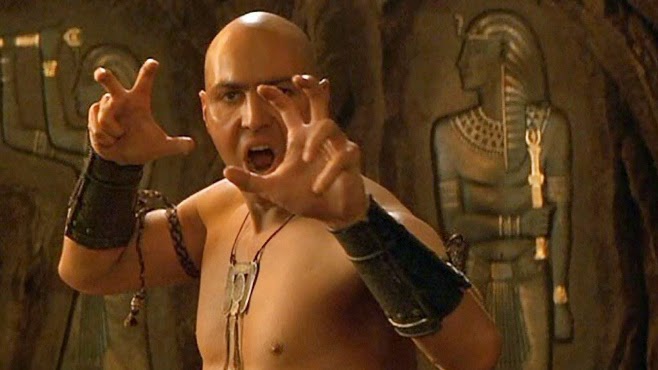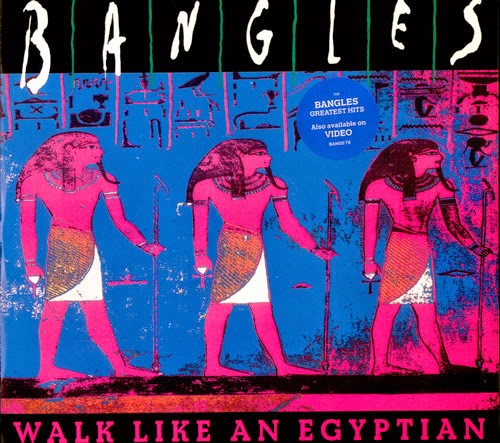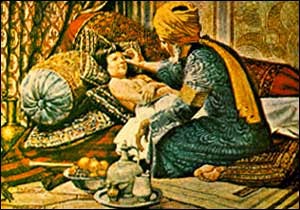So, in my last post I talked a little about Mesopotamian medicine (see here). I am certain many of you were thinking: “What? Should he not be talking about ancient Egypt?”. Well, of course, you are right – kind of…
 Egypt rose under the pharaohs during the same period as the Mesopotamian kingdoms (from about 3000 BC). They were known for their crazy ambition and technological prowess. Their medicine was very similar to that of the Mesopotamians in that it was influenced strongly by superstition and religious beliefs. They too had three types of healers: the swnu who practiced medicine, and, of course, the priests and the sorcerers…
Egypt rose under the pharaohs during the same period as the Mesopotamian kingdoms (from about 3000 BC). They were known for their crazy ambition and technological prowess. Their medicine was very similar to that of the Mesopotamians in that it was influenced strongly by superstition and religious beliefs. They too had three types of healers: the swnu who practiced medicine, and, of course, the priests and the sorcerers…
One of the reasons that ancient Egyptian medicine had a greater influence on modern medicine was that they were very good at documenting and archiving their work. The Ebers papyrus (c. 1550 BC) was their principal medical document that measured over 20 meters long (it is a scroll after all) and is the oldest surviving medical book.
 The Egyptians believed we were all born healthy but were susceptible to disorders caused by demons or by intestinal putrefaction. So the importance of eating your fruits and veggies was started way long ago! They also compared our vascular network to that of the River Nile and its canals and, therefore, it was important to keep the flow free from obstructions (see here for another interesting comparison!). Though they did not appreciate vascular plaques (atheroma) at the time they had already started to figure out the importance of a healthy vasculature. Cool!
The Egyptians believed we were all born healthy but were susceptible to disorders caused by demons or by intestinal putrefaction. So the importance of eating your fruits and veggies was started way long ago! They also compared our vascular network to that of the River Nile and its canals and, therefore, it was important to keep the flow free from obstructions (see here for another interesting comparison!). Though they did not appreciate vascular plaques (atheroma) at the time they had already started to figure out the importance of a healthy vasculature. Cool!
As with Mesopotamia, Egypt’s powerful governance created a good environment for organized medical practice. However, because both regimes were highly codified (implying many strict rules based on religion and superstition that did not allow for discussion and experimentation) it will not be until ancient Greece that the roots of modern medicine will take hold.
Dance around your living room (in private if you must) to Walk Like an Egyptian by The Bangles in order to decompress and…
… I’ll see you in the blogosphere.
Pascal Tyrrell
MiWord of the Day Is… Mesopotamia!
You are thinking about pursuing studies in medicine. You have enrolled in all the necessary courses at school to qualify you for the grueling application process and you are actively looking for volunteer opportunities. So why the need to be active in your community?
Today, I want to talk a little about the history of medicine. Around 3000 BC (and no I was not alive then if you are wondering) the middle east was a hotbed for civilizations who were in transition from being mainly nomadic to more settled. This “land between the rivers” – Mesopotamia – was ruled by many successive great kingdoms including the Akkadian, Babylonian, and Assyrian empires. Thanks to many archaeological and written remains we have discovered that healing practices indeed existed and were established during these times.
Mesopotamian medicine was predominantly religious and was delivered by a team of healers: the seers who would diagnose based on divination, the exorcists who would expel demons, and finally the physician priests who actually treated the sick mostly with charms, drugs, and some surgical procedures. OK, so this intensely codified approach (which meant very little opportunity for discussion) to healing that dominated the Mesopotamian kingdoms would not be able to adapt or improve much over time and would ultimately not contribute much to the Greek rational medicine that would come a later and evolve into today’s medicine.
So why is it important? For two reasons:
Firstly, by understanding the history of medicine you will better appreciate the importance of your role as a physician in your community – regardless if you are a primary care physician on the front line or a radiologist who works in the back ground. What is important is to feel connected and part of your community.
Secondly, it is interesting to see that though Mesopotamian medicine recognized very early on that factors like cold, alcohol, and unhygienic conditions affected health, they were enable to advance and evolve their medicine as Ancient Greece did through ongoing experimentation and discussion. Moral of the story? Medical research rocks!
Do you remember the Babylon 5 series? It came many, many, many years later! Have a peek to decompress and…
… I’ll see you in the blogosphere.
Pascal Tyrrell


